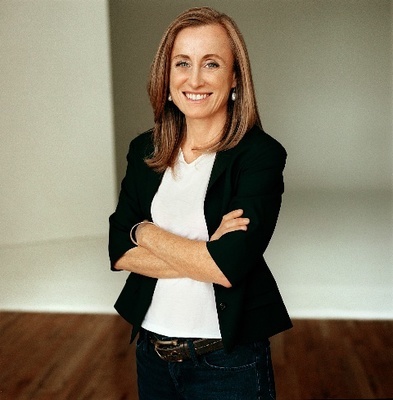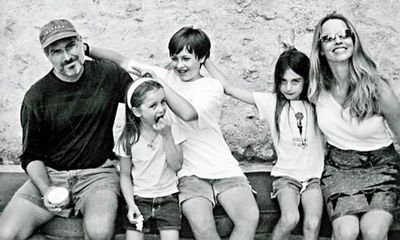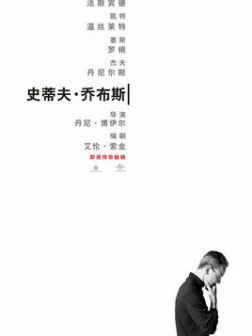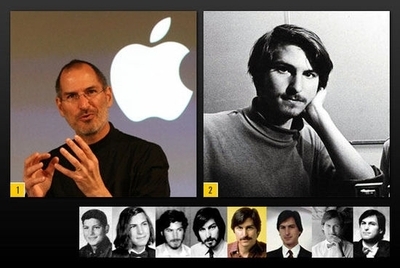
这文字写得太优美太感人了,不保存起来简直就是犯罪啊
http://www.nytimes.com/2011/10/30/opinion/mona-simpsons-eulogy-for-steve-jobs.html?_r=1&pagewanted=all
A Sister’s Eulogy forSteve Jobs
By MONA SIMPSON Published:October 30, 2011
I grew up as an only child,with a single mother. Because we were poor and because I knew myfather had emigrated from Syria, I imagined he looked like OmarSharif. I hoped he would be rich and kind and would come into ourlives (and our not yet furnished apartment) and help us. Later,after I’d met my father, I tried to believe he’d changed his numberand left no forwarding address because he was an idealisticrevolutionary, plotting a new world for the Arab people.
Even as a feminist, my wholelife I’d been waiting for a man to love, who could love me. Fordecades, I’d thought that man would be my father. When I was 25, Imet that man and he was my brother.By then, I lived in New York,where I was trying to write my first novel. I had a job at a smallmagazine in an office the size of a closet, with three otheraspiring writers. When one day a lawyer called me — me, themiddle-class girl from California who hassled the boss to buy ushealth insurance — and said his client was rich and famous and wasmy long-lost brother, the young editors went wild. This was 1985and we worked at a cutting-edge literary magazine, but I’d falleninto the plot of a Dickens novel and really, we all loved thosebest. The lawyer refused to tell me my brother’s name and mycolleagues started a betting pool. The leading candidate: JohnTravolta. I secretly hoped for a literary descendant of Henry James— someone more talented than I, someone brilliant without eventrying.
When I met Steve, he was a guymy age in jeans, Arab- or Jewish-looking and handsomer than OmarSharif.
We took a long walk —something, it happened, that we both liked to do. I don’t remembermuch of what we said that first day, only that he felt like someoneI’d pick to be a friend. He explained that he worked incomputers.
I didn’t know much aboutcomputers. I still worked on a manual Olivettitypewriter.
I told Steve I’d recentlyconsidered my first purchase of a computer: something called theCromemco.
Steve told me it was a goodthing I’d waited. He said he was making something that was going tobe insanely beautiful.
I want to tell you a few thingsI learned from Steve, during three distinct periods, over the 27years I knew him. They’re not periods of years, but of states ofbeing. His full life. His illness. His dying.
Steve worked at what he loved.He worked really hard. Every day.
That’s incredibly simple, buttrue.
He was the opposite ofabsent-minded.
He was never embarrassed aboutworking hard, even if the results were failures. If someone assmart as Steve wasn’t ashamed to admit trying, maybe I didn’t haveto be.
When he got kicked out ofApple, things were painful. He told me about a dinner at which 500Silicon Valley leaders met the then-sitting president. Steve hadn’tbeen invited.
He was hurt but he still wentto work at Next. Every single day.
Novelty was not Steve’s highestvalue. Beauty was.
For an innovator, Steve wasremarkably loyal. If he loved a shirt, he’d order 10 or 100 ofthem. In the Palo Alto house, there are probably enough blackcotton turtlenecks for everyone in this church.
He didn’t favor trends orgimmicks. He liked people his own age.
His philosophy of aestheticsreminds me of a quote that went something like this: “Fashion iswhat seems beautiful now but looks ugly later; art can be ugly atfirst but it becomes beautiful later.”
Steve always aspired to makebeautiful later.
He was willing to bemisunderstood.
Uninvited to the ball, he drovethe third or fourth iteration of his same black sports car to Next,where he and his team were quietly inventing the platform on whichTim Berners-Lee would write the program for the World WideWeb.
Steve was like a girl in theamount of time he spent talking about love. Love was his supremevirtue, his god of gods. He tracked and worried about the romanticlives of the people working with him.
Whenever he saw a man hethought a woman might find dashing, he called out, “Hey are yousingle? Do you wanna come to dinner with my sister?”
I remember when he phoned theday he met Laurene. “There’s this beautiful woman and she’s reallysmart and she has this dog and I’m going to marry her.”
When Reed was born, he begangushing and never stopped. He was a physical dad, with each of hischildren. He fretted over Lisa’s boyfriends and Erin’s travel andskirt lengths and Eve’s safety around the horses sheadored.
None of us who attended Reed’sgraduation party will ever forget the scene of Reed and Steve slowdancing.
His abiding love for Laurenesustained him. He believed that love happened all the time,everywhere. In that most important way, Steve was never ironic,never cynical, never pessimistic. I try to learn from that,still.
Steve had been successful at ayoung age, and he felt that had isolated him. Most of the choiceshe made from the time I knew him were designed to dissolve thewalls around him. A middle-class boy from Los Altos, he fell inlove with a middle-class girl from New Jersey. It was important toboth of them to raise Lisa, Reed, Erin and Eve as grounded, normalchildren. Their house didn’t intimidate with art or polish; infact, for many of the first years I knew Steve and Lo together,dinner was served on the grass, and sometimes consisted of just onevegetable. Lots of that one vegetable. But one. Broccoli. Inseason. Simply prepared. With just the right, recently snipped,herb.
Even as a young millionaire,Steve always picked me up at the airport. He’d be standing there inhis jeans.
When a family member called himat work, his secretary Linetta answered, “Your dad’s in a meeting.Would you like me to interrupt him?”
When Reed insisted on dressingup as a witch every Halloween, Steve, Laurene, Erin and Eve allwent wiccan.
They once embarked on a kitchenremodel; it took years. They cooked on a hotplate in the garage.The Pixar building, under construction during the same period,finished in half the time. And that was it for the Palo Alto house.The bathrooms stayed old. But — and this was a crucial distinction— it had been a great house to start with; Steve saw tothat.
This is not to say that hedidn’t enjoy his success: he enjoyed his success a lot, just minusa few zeros. He told me how much he loved going to the Palo Altobike store and gleefully realizing he could afford to buy the bestbike there.
And he did.
Steve was humble. Steve likedto keep learning.
Once, he told me if he’d grownup differently, he might have become a mathematician. He spokereverently about colleges and loved walking around the Stanfordcampus. In the last year of his life, he studied a book ofpaintings by Mark Rothko, an artist he hadn’t known about before,thinking of what could inspire people on the walls of a futureApple campus.
Steve cultivated whimsy. Whatother C.E.O. knows the history of English and Chinese tea roses andhas a favorite David Austin rose?
He had surprises tucked in allhis pockets. I’ll venture that Laurene will discover treats — songshe loved, a poem he cut out and put in a drawer — even after 20years of an exceptionally close marriage. I spoke to him everyother day or so, but when I opened The New York Times and saw afeature on the company’s patents, I was still surprised anddelighted to see a sketch for a perfect staircase.
With his four children, withhis wife, with all of us, Steve had a lot of fun.
He treasuredhappiness.
Then, Steve became ill and wewatched his life compress into a smaller circle. Once, he’d lovedwalking through Paris. He’d discovered a small handmade soba shopin Kyoto. He downhill skied gracefully. He cross-country skiedclumsily. No more.
Eventually, even ordinarypleasures, like a good peach, no longer appealed to him.
Yet, what amazed me, and what Ilearned from his illness, was how much was still left after so muchhad been taken away.
I remember my brother learningto walk again, with a chair. After his liver transplant, once a dayhe would get up on legs that seemed too thin to bear him, armspitched to the chair back. He’d push that chair down the Memphishospital corridor towards the nursing station and then he’d sitdown on the chair, rest, turn around and walk back again. Hecounted his steps and, each day, pressed a littlefarther.
Laurene got down on her kneesand looked into his eyes.
“You can do this, Steve,” shesaid. His eyes widened. His lips pressed into eachother.
He tried. He always, alwaystried, and always with love at the core of that effort. He was anintensely emotional man.
I realized during thatterrifying time that Steve was not enduring the pain for himself.He set destinations: his son Reed’s graduation from high school,his daughter Erin’s trip to Kyoto, the launching of a boat he wasbuilding on which he planned to take his family around the worldand where he hoped he and Laurene would someday retire.
Even ill, his taste, hisdiscrimination and his judgment held. He went through 67 nursesbefore finding kindred spirits and then he completely trusted thethree who stayed with him to the end. Tracy. Arturo.Elham.
One time when Steve hadcontracted a tenacious pneumonia his doctor forbid everything —even ice. We were in a standard I.C.U. unit. Steve, who generallydisliked cutting in line or dropping his own name, confessed thatthis once, he’d like to be treated a little specially.
I told him: Steve, this isspecial treatment.
He leaned over to me, and said:“I want it to be a little more special.”
Intubated, when he couldn’ttalk, he asked for a notepad. He sketched devices to hold an iPadin a hospital bed. He designed new fluid monitors and x-rayequipment. He redrew that not-quite-special-enough hospital unit.And every time his wife walked into the room, I watched his smileremake itself on his face.
For the really big, big things,you have to trust me, he wrote on his sketchpad. He looked up. Youhave to.
By that, he meant that weshould disobey the doctors and give him a piece of ice.
None of us knows for certainhow long we’ll be here. On Steve’s better days, even in the lastyear, he embarked upon projects and elicited promises from hisfriends at Apple to finish them. Some boat builders in theNetherlands have a gorgeous stainless steel hull ready to becovered with the finishing wood. His three daughters remainunmarried, his two youngest still girls, and he’d wanted to walkthem down the aisle as he’d walked me the day of mywedding.
We all — in the end — die inmedias res. In the middle of a story. Of many stories.
I suppose it’s not quiteaccurate to call the death of someone who lived with cancer foryears unexpected, but Steve’s death was unexpected forus.
What I learned from mybrother’s death was that character is essential: What he was, washow he died.
Tuesday morning, he called meto ask me to hurry up to Palo Alto. His tone was affectionate,dear, loving, but like someone whose luggage was already strappedonto the vehicle, who was already on the beginning of his journey,even as he was sorry, truly deeply sorry, to be leavingus.
He started his farewell and Istopped him. I said, “Wait. I’m coming. I’m in a taxi to theairport. I’ll be there.”
“I’m telling you now becauseI’m afraid you won’t make it on time, honey.”
When I arrived, he and hisLaurene were joking together like partners who’d lived and workedtogether every day of their lives. He looked into his children’seyes as if he couldn’t unlock his gaze.
Until about 2 in the afternoon,his wife could rouse him, to talk to his friends fromApple.
Then, after awhile, it wasclear that he would no longer wake to us.
His breathing changed. Itbecame severe, deliberate, purposeful. I could feel him countinghis steps again, pushing farther than before.
This is what I learned: he wasworking at this, too. Death didn’t happen to Steve, he achievedit.
He told me, when he was sayinggoodbye and telling me he was sorry, so sorry we wouldn’t be ableto be old together as we’d always planned, that he was going to abetter place.
Dr. Fischer gave him a 50/50chance of making it through the night.
He made it through the night,Laurene next to him on the bed sometimes jerked up when there was alonger pause between his breaths. She and I looked at each other,then he would heave a deep breath and begin again.
This had to be done. Even now,he had a stern, still handsome profile, the profile of anabsolutist, a romantic. His breath indicated an arduous journey,some steep path, altitude.
He seemed to beclimbing.
But with that will, that workethic, that strength, there was also sweet Steve’s capacity forwonderment, the artist’s belief in the ideal, the still morebeautiful later.
Steve’s final words, hoursearlier, were monosyllables, repeated three times.
Before embarking, he’d lookedat his sister Patty, then for a long time at his children, then athis life’s partner, Laurene, and then over their shoulders pastthem.
Steve’s final wordswere:
OH WOW. OH WOW. OHWOW.
Mona Simpson is anovelist and a professor of English at the University ofCalifornia, Los Angeles. She delivered this eulogy for her brother,Steve Jobs, on Oct. 16 at his memorial service at the MemorialChurch of Stanford University.
可以想见,这样的文字翻译成中文是很困难的,但是还是有人愿意吃力不讨好地冒这个险。但是题目“爱是他的众神之神”似乎不太贴切,因为乔布斯信奉的一只禅宗:
http://www.donews.com/it/201110/739194.shtm
兄妹相认
我在单亲家庭长大,与母亲相依为命。由于家里穷,而且我知道父亲是叙利亚移民,所以我一直都把他想象成奥玛·沙里夫(OmarSharif,译注:男演员)的样子。我希望他很富有,有朝一日能走进我们的生活(以及我们家徒四壁的公寓),并为我们提供帮助。后来,当我见到父亲后,我试图相信他之所以换了电话号码而且没有留下邮寄地址,是因为他是一个理想主义革命者,希望为阿拉伯人民规划新的世界。
即使作为一个女权主义者,我一生都在寻找一个值得我爱而且爱我的男人。数十年来,我一直以为这个男人就是我的父亲。等到我25岁时,我终于遇到了这个男人,他就是我哥哥。
彼时,我住在纽约,正在构思我的第一部小说。我当时与另外3名有志写手一同供职于一家小杂志社,办公室的面积只有壁橱那么大。有一天,律师打电话给我——作为一名来自加州的中产阶级女孩,我当时还在争吵着让老板给我们买医疗保险——并告诉我说,他有一位著名的富豪客户是我失散多年的哥哥,那些年轻的编辑们当时都惊呆了。那是在1986年,我们当时效力于一家前沿文学杂志,但我却突然陷入了狄更斯小说的情节之中,这令我们所有人都欣喜若狂。律师拒绝向我透露哥哥的姓名,同事们纷纷开始打赌。最佳候选人是约翰·特拉沃尔塔(JohnTravolta,译注:男演员)。但我私下里却最希望哥哥是亨利·詹姆斯(HenryJames,译注:已故作家)的拥趸,希望他比我更有才华,是一个天才。
当我见到史蒂夫时,发现他跟我差不多年纪,穿着牛仔裤,看起来像是阿拉伯人或犹太人,比奥玛·沙里夫帅。
我们一起散了会步——我们俩恰好都喜欢散步。我不太记得我们第一天都说了些什么,只是感觉他是我喜欢的那种类型。他解释道,他是做电脑工作的。
我当时仍在使用Olivetti打字机,并不太了解电脑。我对史蒂夫说,我最近正在考虑购买第一台电脑,一台名为Cromemco的电脑。
史蒂夫告诉我,这东西不错。他说,他当时正在做一些美得令人窒息的东西。
工作专注
我想跟大家分享一些我从史蒂夫那里学到的东西。我与他相识的27年总共可以分为三个阶段,这并非三个时期,而是三种状态:他的生活、他的疾病以及他的临终。
史蒂夫从事了自己热爱的工作,他非常努力,每天如此。
这似乎很简单,但却无比真实。
他反对心不在焉。
他从不会因为努力工作而苦恼,即使最终的结局是失败。倘若我拥有史蒂夫那样的才华,或许未必会像他那样敢于尝试。
被逐出苹果后,他很痛苦。他对我说,时任美国总统举行了一次晚宴,邀请了当时的500名硅谷领袖。但史蒂夫并未被邀请。
他很受伤,但依旧在NeXT工作,每天如此。
史蒂夫的最高价值并非新奇,而是美观。
对于一个创新者而言,史蒂夫对某些事情却非常忠诚。如果他喜欢一件T恤,便会购买10件或100件。在他位于帕罗奥尔托的家中,有很多黑色高翻领棉线衫,大概够在场的人每人一件。
他不喜欢流行趋势和噱头。他喜欢与自己年龄相仿的人。
他的美学理念让我想起一句名言:“时尚起初很美,但却会越来越丑。艺术起初很丑,但却会越来越美。”
史蒂夫总是希望做出“越来越美”的东西,他不介意被人误解。
虽然没有被邀请参加晚宴,但他却经常开着同一辆黑色跑车去NeXT,与他的团队秘密开发一个平台。蒂姆·伯纳斯-李(TimBernerts-Lee)后来用这个平台编写出了万维网。
视爱如命
史蒂夫谈论爱情的时间跟女孩一样多。爱是他的极致追求,是他的众神之神。他总是关注并操心周围人的情感生活。
每当他看到可能会吸引女性的男人时,就会打电话给对方:“你单身吗?你想跟我妹妹共进晚餐吗?”
我还记得他第一次见到劳伦(Laurene,译注:乔布斯的妻子)时,他说:“有一个美女,她很聪明,还有一条狗,我想跟她结婚。”
里德(Reed,译注:乔布斯的儿子)出生后,他开始唠唠叨叨,片刻不停。他是一个事无巨细的爸爸,对每个孩子都是。他操心丽莎(Lisa)的男友和艾琳(Erin)的旅行,以及他们的裙子长度,他还害怕伊芙(Eve)被马伤到。
所有参加过里德毕业典礼的人都不会忘记里德跟史蒂夫共同慢舞的情形。
他一直坚守着对劳伦的爱。他相信爱能永恒,且无处不在。在这方面,他从不讽刺挖苦,从不愤世嫉俗,从不悲观厌世。我一直在向他学习,至今如此。
生活简朴
史蒂夫年少成名,但他却因此而倍感孤独。自我们相识以来,他所做的多数决策都是为了化解隔阂。作为一个来自洛斯拉图斯(LosAltos)的中产阶级男孩,他与一个来自新泽西的中产阶级女孩坠入爱河。让丽莎、里德、艾琳和伊芙像普通孩子一样成长,对他们二人都非常重要。他们的房子并没有太多装饰:事实上,在他们婚后的很多年里,晚餐很多时候都是在草地上吃的,有时只是一种蔬菜。量虽然很大,但只有一种。比如西兰花,都是时令蔬菜。经过简单的烹制,加上了一些刚刚采集的香料。
尽管年纪轻轻就成了百万富翁,史蒂夫却总会亲自到机场接我。他就穿着牛仔裤站在人群中。
当有家人打电话到公司找他时,他的秘书琳内塔(Linetta)会说:“你爸爸正在开会。你想让我打断他吗?”
里德每年万圣节都坚持要打扮成女巫,史蒂夫、劳伦、艾琳和伊芙都必须扮演他手下的巫师。
他们曾经改造过一次厨房,但却历时数年。他们只好在车库的电炉上做饭。当时正在兴建的皮克斯大楼刚刚完工一半。他在帕罗奥尔托的家就是这么简单,浴室也很旧。但关键在于,它已经成为了一个开始一天生活的好地方:史蒂夫很看重这一点。
他并非不享受自己的成功:他也很享受,只是没有那么铺张。他对我说,当他在帕罗奥尔托的自行车店发现自己买得起最贵的自行车时,心里别提多高兴了。
他的确买得起。
不断学习
史蒂夫很谦虚,他喜欢不断学习。
有一次,他对我说,如果成长的环境不同,他有可能成为数学家。他对大学充满崇敬,而且喜欢到斯坦福校园里散步。在他生命中的最后一年里,他学习了马克·罗斯科(MarkRothko)的一本绘画书。虽然他以前并不知道这位画家,但这本书却让他开始思考,今后如何利用苹果园区的墙面图案激发人们的灵感。
史蒂夫经常会有一些怪念头。除了他,还有哪位CEO会知道香水月季的中英文历史,并对大卫·奥斯汀玫瑰感兴趣?
他的口袋里会放很多古怪的东西。我打赌,就算结婚20年后,劳伦仍会有一些意外的发现——他喜欢的歌,他喜欢的诗,这些都可能放在某个抽屉里。我几乎每隔一天都会跟他通话,但当我在《纽约时报》上看到苹果的一些专利时,仍会为那个完美的楼梯设计草图感到意外和欣喜。
有了四个孩子,有了妻子,有了我们所有人,史蒂夫拥有了很多快乐。
他很珍视幸福。
病痛来袭
后来,史蒂夫病了,他眼睁睁地看着自己的人生被压缩成了更短的轮回。曾几何时,他喜欢徒步穿越巴黎,喜欢在京都寻找卖手工荞麦面的小店。他在滑雪场内的动作很优雅,但到了野外却很笨拙。如今,这一切都不复存在了。
到最后,即使是生活中最常见的快乐,比如吃到一个好桃子,都无法再吸引他。
但真正令人惊讶的,也是我从他的病痛中学到的是,即使失去很多,你仍未孑然一身。
我还记得我哥哥再次学习走路时的情形——这一次需要用椅子做支撑。在肝移植手术后,即使双腿似乎已经完全无力支撑身体,但他每天仍会扶着椅背站起来,推着椅子沿走廊来到护士站。然后坐下来歇一会,再转身走回去。他每天都数着自己的步数,每天都走远一些。
劳伦跪在地上,看着他的眼睛。“你能做到,史蒂夫。”她说。他瞪大了眼睛,嘴唇紧闭。
他努力了,一直在努力,而且一直心怀爱意地努力着。他是一个让人感动至深的人。
为爱坚守
我知道,在那段令人难熬的时期,史蒂夫不是为了自己而忍受痛苦。他给自己定了很多目标:等到儿子里德高中毕业,女儿从京都旅行回来,他造的船下水,然后带着全家人周游世界。他希望有朝一日,他和劳伦都能退休。
即使在病中,他依旧坚持自己的品味、辨别力和判断力。他整整换了67个护士才最终找到3个满意的人选,之后给予她们充分的信任,直到去世。她们是特雷西(Tracy)、爱徒罗(Arturo)和伊尔哈姆(Elham)。
有一次,史蒂夫染上了一种顽固的肺炎,医生禁止他做很多事情,包括吃冰。我们当时获准进入了标准的重症监护室(ICU)。史蒂夫通常不喜欢插队或亮明身份,但他那一次却承认,他喜欢得到一点优待。
我对他说:史蒂夫,这是一次优待。他侧身转向我,说道:“我想得到一点优待。”
在气管插管时,他不能说话,但却向我们要了一个记事本。他画了一张草图,内容是在病床上支撑iPad的设备。他还设计了新的流体监视器和X光设备。他甚至重新规划了这个不是那么特别的ICU病房。而每当他的妻子走进病房时,我都能看到他脸上重新泛起笑容。
对于一些很重要的事情,他会在本子上写下来,然后抬起头来。他的意思是想违反医嘱,让我给他一块冰。
我们谁也不清楚会在那里呆多久。在史蒂夫好转时,即使是在他生命中的最后一年,他依然开始着手从事一些项目,并向苹果的好友们承诺会完成这些项目。荷兰的造船师已经做好了华丽的不锈钢船体,并准备覆盖上木头。他的3个女儿都没结婚,两个小女儿甚至没有成年。他希望能在婚礼上领着她们走上圣坛,就像在我婚礼上那样。
临终时刻
人总有一死,只是时机各有不同。
我知道,把一个多年癌症患者的死亡称作是“意料之外”,似乎不够准确。但史蒂夫的死的确是我们始料未及的。
从我哥哥的去世中,我明白了个性的重要性:他是什么样的人,就会以什么样的方式离世。
周二早上,他打电话让我赶快去帕罗奥尔托。他的语气深情而充满爱意,但就像是一个已经托运好行李的人,他的旅程即将开始。尽管他对离开我们充满歉意,深深的歉意。
他开始与我告别,我打断了他,我说:“等着我。我马上来。我已经坐上出租车赶往机场了,我会赶到的。”
“我现在给你打电话是因为我担心你可能没法及时赶到,亲爱的。”
当我赶到时,他正在跟他的劳伦打趣,就像是一对毕生形影不离的伙伴。他凝望着孩子,仿佛目光定格了一般。
到下午2点,他妻子还能叫醒他,让他跟苹果的朋友谈了一会儿。
之后,过了一会儿,他显然再也无法清醒地与我们沟通。
他的呼吸发生了变化,变得困难,但似乎又在刻意保持。我能够感觉到他又在默数着自己的脚步,希望能多坚持一会儿。
我当时恍然大悟:他也把这当成工作。死亡永远不会发生在史蒂夫身上,他做到了。
在跟我告别时,他非常遗憾,因为我们不能如愿一起变老了。他对我说,他要去更好的地方了。
费舍尔医生(Fischer)估计,他活过当晚的概率只有50%。
他整晚都在坚持。劳伦就守在床边,当他的呼吸节奏变长时,她会突然惊醒,与我四目相对。然后,他又开始深呼吸,
他必须要做到。即使是现在,他依旧保持着严厉而英俊的形象,这是一个专制而浪漫的人的形象。他的呼吸表明了旅途的艰辛,路途很陡峭,海拔似乎也很高,他像是在登山。
但凭借这种信念,这种职业操守以及这种勇气,史蒂夫令人惊叹的能力,对理想主义的执着追求,对美好未来的畅想,仍将留存。
史蒂夫最后的话是在去世前几小时说的,这都是些单音节词,总共重复了3遍。
离开人世前,他看了看妹妹派蒂(Patty),然后长期凝望着他的孩子们,之后则是他的人生伴侣劳伦,最后,目光便看向远方。
史蒂夫最后的话是:OH WOW。OH WOW。OH WOW。(书聿)
 爱华网
爱华网


